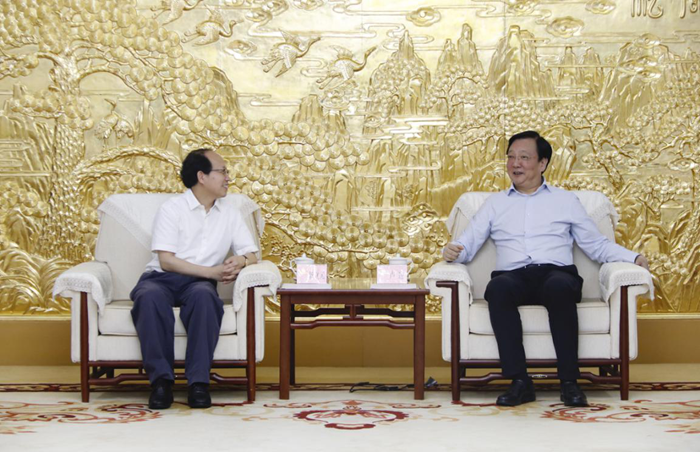21 depth | Hedge fund "defeated Maicheng"?Why does the yen's short -selling tide dissipate?
Author:21st Century Economic report Time:2022.08.18
21st Century Business Herald reporter Chen Zhi Shanghai report
Although the Fed's continuous interest rate hovering made the US dollar index hovering at a high level, the sales of the Japanese yen are quietly retreating.
The latest data released by the American Commodity Futures Trading Commission (CFTC) shows that the yen net short position held by leverage investors has dropped to its lowest level since March 2021.
Affected by this, the exchange rate of the dollar against the yen in the past month has fallen from 139.19 to nearly 135.17, during which the 130 integer mark was touched.
"This has made many bets on the US dollar against the yen that will exceed 150 hedge funds." A Wall Street hedge fund manager revealed to reporters. During the past month, their short replenishment has become the biggest behind the scenes of the yen exchange rate that continues to rebound and the short -selling tide.
Behind this is that more and more hedge funds have begun to gamble on the Bank of Japan or start the pace of currency policy in the "Hou Abe Times", which has led the yen exchange rate valuation to the bottom.
Earlier, the reason why these hedge funds dared to bet on the yen against the US dollar fell below 150? One of the important reason is that they believe that the Bank of Japan will continue to pursue extremely loose monetary policy with the support of Abe, and significantly tighten monetary policy with other developed countries to tighten monetary policy. "Dangdang is different."
The reporter was informed that another important factor that made the yen's short -selling tide was that many hedge funds believed that the Bank of Japan may quietly enter the market for the past month to sell the US dollar and support the yen exchange rate. After all, the continuous depreciation of the yen has led to severe operating difficulties in Japanese companies, and the public has to face higher living costs.
"Obviously, no one wants to confront the Bank of Japan. Besides, the market generally believes that the US dollar index has touched 109.39 in the past 20 years, and has greatly overdraw the future of the Federal Reserve's great interest rate hike effect. Dagukuki Yen is profitable. "A foreign exchange broker analyzed to reporters.
In his opinion, another factors that make the yen's short -selling tide cannot be ignored, and the yen is replacing the yen as a new financing currency.
Data Data showed that the appreciation of the yen against the euro since the end of June exceeded 6%. In the case of greater pressure on the euro, more and more global investment institutions are more enthusiastic about borrowing the euro to carry out high leverage spread transactions, which has caused the yen's short -selling pressure to decrease suddenly.
"At present, the Japanese yen seems to be restoring the attributes of the hedging currency." A macro -economy hedge fund manager pointed out to reporters. The latest signs show that more and more capital is buying up the yen again as an important risk aversion strategy for hedging in the risk of economic recession in Europe and the United States.
After the yen's short -selling tide retreat
After the July yen against the US dollar exchange rate fell to the lowest value of 139.39 in the past 20 years, many hedge funds began to bet on the yen against the US dollar exchange rate soon below the 150 integer mark.
From the perspective of these hedge fund managers, the continuous differentiation of the Japanese and American monetary policy, the tough attitude of the Bank of Japan's continuation of extremely loose monetary policy, and the disappearance of the yen -aversion of the yen have made the yen exchange rate "weak".
"At that time, no one would think that the exchange rate of the yen against the US dollar one month later not only held the 140 integer mark, but also touched the 130 high." The biggest behind the scenes that lead to the retreat of the yen's short -selling tide is the assassination of the former Japanese Prime Minister Abe, which led many hedge funds to bet on the Bank of Japan may open the pace of monetary policy. After all, Abe has always been a firm supporter of the Bank of Japan's continuation of extremely loose monetary policy.
"From that moment, the foreign exchange market was significantly differentiated," he pointed out. On the one hand, more and more hedge funds and high -leveraged investors have reduced their holdings of the yen short position. On the other hand, Japanese local investors are still passing through the yen spread transaction (betting for the depreciation of the yen), buying U.S. debt, etc. High -income assets earn risk -free spreads.
However, the former quickly occupied the upper hand.
The reason is that the dollar has risen in the past month, and it does not support the yen exchange rate to continue to fall. In particular, many quantitative investment funds have greatly reduced yen short positions due to the callback of the US dollar index.
Yukio Ishizuki, a senior foreign exchange strategist in Yamato Securities, believes that this does not mean that the yen's short -selling wave is completely stunned. At present, many hedge funds cut the blank positions of the yen, which is based on the expected expectations of the Bank of Japan will quickly tighten monetary policy. Once the Bank of Japan continues the loose monetary policy, they will quickly set off a larger -scale short -selling yen. In addition, many speculators do not believe that the Bank of Japan will continue to intervene in the exchange rate of the exchange market.
The aforementioned foreign exchange broker pointed out that investment institutions that are currently tightened by Japanese monetary policy have basically emptied all yen short positions, making the yen's short -selling wave seemed to have "bottomed out." At present, whether the yen spread transaction is reunited again, which has greatly affected the changes in the yen short position, but an indisputable fact is that the Japanese yen as a financing currency is facing an extremely strong competitor.
A strong competitor of the yen spread transaction
The strong competitor said by the foreign exchange broker is mainly the euro.
In mid -July, the exchange rate of the euro against the US dollar fell to a parity, and the euro spread trading quickly became hot -more and more global investment institutions took the euro as new financing currencies to carry out various high leverage transactions.
Aozora foreign exchange product manager Akira Moroga revealed to reporters that more and more hedge funds choose the euro as a financing currency is that the European economy is facing an extremely severe energy supply crisis and inflation pressure Yuan. Therefore, they believe that borrowing the euro to carry out various spread trading (and short -selling euro), and the benefits and profitability obtained by the earnings are higher than the yen. Data Data Data shows that since the end of June, the appreciation of the yen against the euro has exceeded 6%, indicating that the use of the euro as a financing currency trading transaction is used. In addition.
The reporter was informed that as the euro spread trading continued to rise, the Japanese watches of Watanabe's watches were also significantly impacted. In the past, they would borrow the yen to exchange for the euro and invest in high -yield government bonds in some European countries to earn a spread. Now with the rapid depreciation of the yen against the yen, they have found that the above -mentioned spreading transactions are facing extremely high risk of exchange loss. Withdrawal of yen spread trading funds from Europe, the short -selling pressure of the yen suddenly reduces a lot.
"More importantly, as the yen spread transaction is cold, a large number of yen leverage financing funds will return to Japan, the risk aversion of the yen seems to be quietly recovering." The aforementioned macro -economy hedge fund manager pointed out. Especially when the European and American economy is increasingly facing the risk of recession, the yen exchange rate has suddenly risen, and it is easy to make more and more investment institutions see the yen as a new risk aversion currency and buy the yen exchange rate.
However, this means that the yen exchange rate will usher in a significant appreciation after the yen's short -selling tide.
Several financial markets have pointed out that the Japanese government needs to boost the competitiveness of Japanese goods exports and reverse the trading deficit dilemma. It does not rule out that when the Japanese yen exchange rate continues to rise sharply, the Bank of Japan has quietly entered the market to suppress the yen.
- END -
Lu Jin met with Chai Liyuan, an academician of the Chinese Academy of Engineering

On July 13, Lu Jin, Secretary of the Party Committee and Chairman of China Gold Gr...
Promote the use of data efficiently and empower the real economy

The 26th meeting of the Central Comprehensive Deepening Reform Commission held a f...